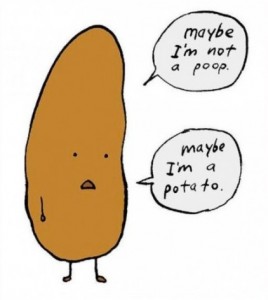Maybe, The Dangerous Answer
October 5th, 2012[ General ]
I had a great chat today with Dave Estill where we got into yes and no and maybe. Dictionary.com defines “maybe” as “perhaps; possibly: Maybe I’ll go too.” I have a new definition for entrepreneurs:
maybe [mey-bee]: redirect to No
- an utterance of the word “no”
- a denial or refusal.
- a negative vote or voter.
For entrepreneurs, accepting maybe often leads to what I refer to as the false prophet syndrome. You ask your mom for $10K to start your new facebook app. She says maybe, let me think about it.
You think “yes, $10K to get started!”, you buy that macbook on your credit card, lease an office and get rolling. A month later your mom finally admits she’s not comfortable lending you money. While you were spending money you didn’t have buying laptops and leasing office space, what you weren’t doing is hunting for that $10K you need. You were in a holding pattern under the assumption something was forthcoming.
How do you fix this? First, do us all a favour and start answering questions with a concrete yes or no. Sec
Not to pick on them but you often see this with VC’s as well. Rarely does a VC actually say no to you, you’re just “not at the right stage yet for them”. If a VC says that to you, do not head back to your office to tell the team “they love us, we’re just not quite ready for them but we’ll meet with them again in 3 months”. Do go back to your office and say “it was a no, how do we fix that?”ond, start treating all answers, except for yes, as a no. Maybe isn’t allowed. It’s that middle ground that can be harmful to an entrepreneur and the wider community.
My point in all this is that entrepreneurs survive only by the action they take today. You, as an entrepreneur, must never accept maybe. Mush-mouth, soft-no responses are worthless to you. You need to practice and become proficient at pushing for yes/no responses.
If you’re raising money, every response except for a signed cheque is a no.
If you’re selling your product, every response except for a paid sale is a no.
Unless you have your yes, assume you failed and get back to your lab and get back to work. Why did they say no? Refactor your pitch, improve your product, better define your customer, whatever it takes. Do not fall into the trap of treating a maybe as a yes. To help, I’m providing a simple framework/cheatsheet below….
Yes = Yes
Maybe = No
Let me think about it = No
I have to speak to my team first = No
I love your product and what you’re doing = No
We’re in, but we’ll need to hold off until next quarter = No
No = No

